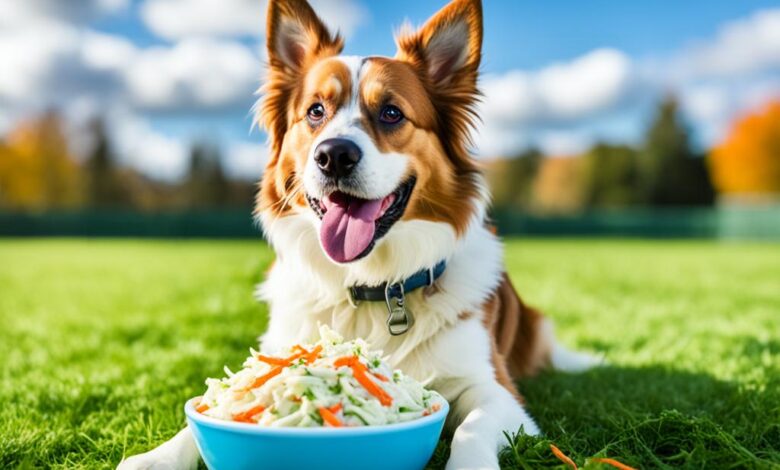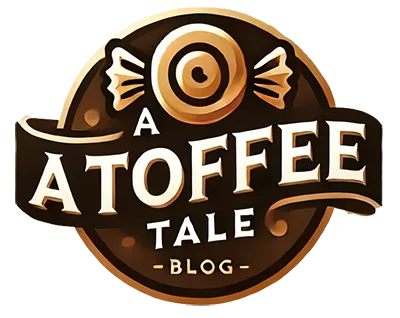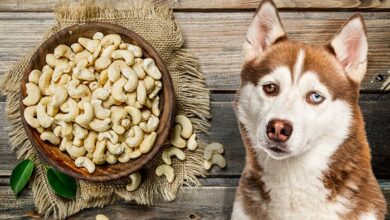Can Dogs Eat Coleslaw Safely? Important Facts to Consider in 2024

Can Dogs Eat Coleslaw? If you’ve ever wondered whether your dog can join you in enjoying this tasty salad, you’re in the right spot! Coleslaw is a crunchy salad made primarily from shredded cabbage and often includes carrots. It usually features a dressing that can be creamy, like mayonnaise, or tangy, like vinegar.
Recipes for coleslaw can vary widely, with some adding ingredients like sugar, onions, mustard, or even raisins. While this dish is a favorite for many humans, it’s essential to know which components are safe for your furry friend. Let’s take a closer look at what’s in coleslaw and what it means for your dog’s health! Let’s explore-can dogs eat coleslaw?
Is Coleslaw Safe for Dogs? Can Dogs Eat Coleslaw?
Can Dogs Eat Coleslaw? This is an important question to consider if you enjoy sharing meals with your furry friend. While coleslaw may be a delicious side dish for humans, it often contains several ingredients that can be harmful to dogs. Let’s explore whether coleslaw is safe for our canine companions and why it’s best to avoid giving it to them.
Harmful Ingredients:
Many traditional coleslaw recipes include ingredients that pose health risks to dogs.
- Onions and Garlic: These ingredients are toxic to dogs, even in small amounts. They can cause damage to red blood cells, leading to conditions like hemolytic anemia, which can be life-threatening.
- Fatty Dressings: Creamy dressings, especially those made with mayonnaise, can be particularly harmful. The high fat content in these dressings can lead to digestive upset, which can make your dog uncomfortable and unwell.
Digestive Irritants:
Ingredients like vinegar and sugar can irritate your dog’s stomach.
- Vinegar: While it adds flavor to coleslaw, vinegar can cause stomach irritation in dogs, leading to vomiting or diarrhea.
- Sugar: Many coleslaw recipes contain added sugars, which can disrupt your dog’s blood sugar levels and contribute to obesity. Excess sugar is not only bad for their waistline but can also lead to dental issues and other health concerns.
Risk of Pancreatitis:
The high-fat content from mayonnaise and similar dressings can lead to serious health problems.
- Digestive Upset: Even a small amount of fatty dressing can result in symptoms like diarrhea, lethargy, and abdominal pain.
- Pancreatitis: This condition is an inflammation of the pancreas and can be caused by the ingestion of high-fat foods. It can lead to severe illness and requires veterinary intervention.
So, can dogs eat coleslaw? The answer is no, it’s generally not safe for dogs. The harmful ingredients found in coleslaw, including onions, high-fat dressings, vinegar, and sugar, make it a risky choice for your furry friend. Instead, consider offering them dog-friendly snacks that provide health benefits without the associated risks of coleslaw. Always prioritize your dog’s health and safety by being mindful of what you share with them!
Why Onions in Coleslaw Are Dangerous for Dogs
Can Dogs Eat Coleslaw? When discussing this topic, it’s crucial to understand the dangers posed by certain ingredients, especially onions. Onions are often found in coleslaw recipes, and they can be extremely harmful to dogs. Let’s dive into why onions are dangerous for our furry companions.
Toxicity of Onions and Garlic:
Onions and garlic belong to the Allium family, which is toxic to dogs. Even small amounts can cause significant harm.
- Red Blood Cell Damage: These ingredients contain compounds that can damage red blood cells, leading to a condition known as hemolytic anemia. This condition reduces the oxygen-carrying capacity of the blood, making it difficult for your dog to function normally.
Symptoms of Onion Toxicity:
If your dog ingests onions, keep an eye out for several key symptoms:
- Weakness and Lethargy: Your dog may seem unusually tired and less energetic than usual.
- Vomiting: Onions can irritate your dog’s stomach, leading to vomiting.
- Pale Gums: A telltale sign of anemia is pale or yellowish gums, indicating a lack of healthy red blood cells.
Severity and Treatment:
Onion poisoning can be severe and may require immediate veterinary attention.
- Veterinary Care: If you suspect your dog has eaten coleslaw containing onions, it’s essential to contact your veterinarian. They can assess the situation and determine the appropriate course of action, which may include inducing vomiting or providing supportive care.
Can dogs eat coleslaw? The inclusion of onions in coleslaw makes it unsafe for dogs. The risk of onion toxicity is too great, and the potential for severe health issues warrants a cautious approach. Always check the ingredients of human foods before sharing them with your dog, and opt for safe, dog-friendly treats instead!
How High-Fat Ingredients Affect Dogs
Can Dogs Eat Coleslaw? When considering this question, it’s essential to evaluate the impact of high-fat ingredients commonly found in coleslaw, such as mayonnaise and creamy dressings. Let’s take a closer look at how these ingredients can affect your dog’s health.
Digestive Upset:
High-fat ingredients like mayonnaise can lead to immediate gastrointestinal issues.
- Diarrhea and Vomiting: When dogs consume fatty foods, they may experience digestive upset, resulting in diarrhea or vomiting. This is particularly true for dogs that are not accustomed to rich foods.
Long-Term Health Risks:
Regular consumption of high-fat foods can lead to more severe health problems over time.
- Obesity: Fatty foods contribute to weight gain, putting your dog at risk for obesity, which can lead to other health issues, such as joint problems and diabetes.
- Pancreatitis: A high-fat diet increases the risk of pancreatitis, a painful condition where the pancreas becomes inflamed. This can cause severe abdominal pain and may require hospitalization.
Sensitivity in Some Dogs:
Some dogs have more sensitive stomachs than others.
- Increased Risk of Gastrointestinal Issues: Dogs with sensitive stomachs may be particularly prone to digestive issues when consuming rich or fatty foods. Symptoms can include bloating, gas, and discomfort.
While can dogs eat coleslaw may seem like a harmless question, the presence of high-fat ingredients like mayonnaise poses significant risks to your dog’s health. If you’re considering sharing coleslaw with your furry friend, it’s best to avoid it altogether and opt for safer, healthier snacks that won’t upset their digestive system. Always prioritize your dog’s well-being by being mindful of what they eat!
What to Do if Your Dog Eats Coleslaw
Can Dogs Eat Coleslaw? If your dog accidentally munches on coleslaw, it’s essential to know how to respond promptly and effectively. Here’s what to do if your dog eats coleslaw to ensure their well-being.
Monitor Your Dog’s Health:
- Watch for Symptoms: Keep an eye on your dog for any signs of distress, such as vomiting, diarrhea, or lethargy. These symptoms may indicate that their digestive system is reacting negatively to the coleslaw.
- Be Aware of Onion Toxicity: If the coleslaw contains onions and your dog exhibits signs of onion toxicity, such as weakness, pale gums, or trouble breathing, it’s crucial to act quickly.
Contact a Veterinarian:
- Seek Immediate Help: If you notice any symptoms of onion toxicity or severe digestive upset, contact your veterinarian right away. Quick action can make a significant difference in your dog’s health.
- Provide Details: Be ready to inform the vet about what your dog ate, how much, and when. This information helps them provide the best advice and treatment.
Offer Plenty of Water:
- Stay Hydrated: Make sure your dog has access to fresh water. Hydration can help flush out any toxins and support their digestive system.
- Avoid Fatty Foods: Refrain from giving your dog any more fatty or seasoned foods until you’re certain they have fully recovered. Stick to plain, bland foods if needed.
If you’re wondering, can dogs eat coleslaw, and your dog has snuck a bite, stay vigilant and monitor their health closely. Being proactive and knowing how to respond can ensure your furry friend remains safe and healthy after a coleslaw mishap!
Healthier Snack Alternatives to Coleslaw for Dogs
Can Dogs Eat Coleslaw? While coleslaw may not be the best choice for our furry friends, there are plenty of healthier snack alternatives you can offer instead. Let’s explore some nutritious options that will keep your dog happy and healthy!
Plain Cooked Cabbage or Carrots:
- Moderation is Key: You can safely offer your dog plain, cooked cabbage or carrots as treats. These veggies are packed with nutrients and are much easier on their digestive system than coleslaw.
- Benefits: Both cabbage and carrots are low in calories and can provide vitamins and fiber, contributing to your dog’s overall health.
Low-Fat Vegetables:
- Cucumbers: These are hydrating and low in calories, making them a great crunchy snack for dogs.
- Green Beans: Rich in vitamins and minerals, green beans are a filling option that dogs usually enjoy.
- Pumpkin: Plain canned pumpkin (not the spiced pie filling) is excellent for digestion and can be a tasty treat for your pup.
Simple Dog-Friendly Salad:
- Easy and Nutritious: You can create a simple salad for your dog using plain, unseasoned ingredients. Combine cooked veggies like carrots and green beans for a nutritious meal.
- Customization: Feel free to add lean proteins like shredded chicken or turkey to make it even more appealing to your dog.
Conclusion
In conclusion, while can dogs eat coleslaw is a question that leans towards a “no,” there are many healthier snack alternatives you can offer. Incorporating plain vegetables and simple, natural ingredients into your dog’s diet can provide them with tasty treats without the risks associated with coleslaw. Your dog will love these nutritious options, and you’ll feel good knowing you’re keeping them safe and healthy!




